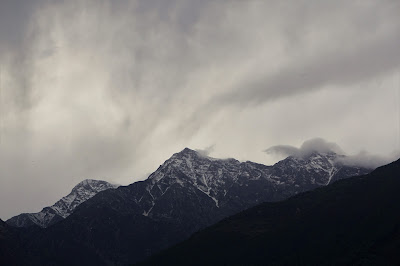Solitude
After contemplating for several months, I have decided to write about the utter simplicity of solitude. Recently, in our Bodhisattvacaryāvatāra class, we studied about the physical and mental solitude. One of the key components of my experience of solitude is to allow oneself to heal. Thích Nhất Hạnh, in his book called Silence, indicated that resting is a precondition for healing. Thầy pointed out that when we humans have illness, we worry too much and do not allow ourselves to relax at all. This makes us suffer even more. On the other hand, when animals in the forest get wounded, they find a place of solitude and rest completely. Even food or any other concern becomes secondary at that time. In my experience as well, when solitude and fasting are combined together, one can truly rest to heal.
As I study Buddhist Philosophy and try to fathom the academic reading materials, I often long for an extended solitude. Because it is only then, that we slowly but steadily assimilate our learnings. As our semester becomes intense with major assignments and the finals approaching soon, oddly enough, I find myself reading Mevlana Rumi. There is an interesting story about how he met Shams Tabriz, his spiritual mentor and literary muse. Their extra-ordinary encounter enabled Mevlana to relinquish his grasping for knowledge and borrowed awareness, revealing his true calling that reflected in his poetry. Similarly, in a way, one needs to empty oneself of all the intellectual and conceptual elaborations to experience life intimately through solitude. In Mevlana’s words:
“Be emptier, and cry like the reed instruments cry.
Emptier, write secret with the reed pen.”
[Coleman Barks, Rumi: The Big Red Book, 22.]
~ Moondil Jahan




Comments